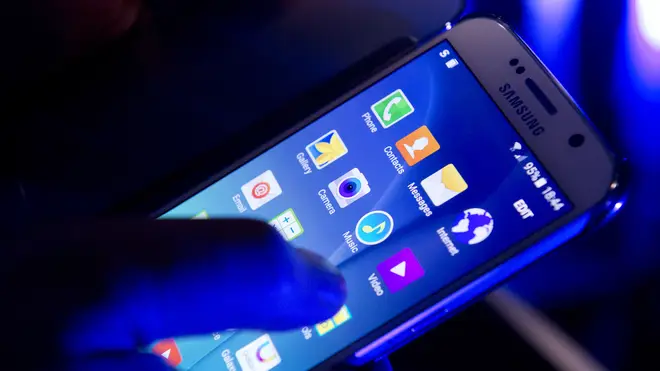
Clive Bull 1am - 4am
19 May 2023, 00:04

Prime Minister Rishi Sunak said the investment would help ‘build our competitive edge on the global stage’.
The UK’s semiconductor industry will receive £1 billion in investment over the next decade as ministers look to ensure the country is not reliant on China for technology advancements.
Prime Minister Rishi Sunak said the funding, forming part of the national semiconductor strategy, would help “build our competitive edge on the global stage”.
The announcement of the 20-year plan comes after Mr Sunak used a G7-related trip to Japan to agree a partnership on semiconductors with Tokyo as part of efforts to reduce the reliance on Beijing for the supply of the essential microchips.
Britain and its Western allies are taking an increasingly hawkish stance towards Chinese technology, including in their communication networks and surveillance equipment, over fears President Xi Jinping’s national security laws could force the Far East country’s tech giants to hand over foreign data to the ruling Communist Party.
The Department for Science, Innovation and Technology said that almost every piece of technology depends on semiconductors, with the tiny chips found in mobile phones, computers, ventilators and power stations.
Officials said they also will underpin future technologies, such as artificial intelligence, quantum computing and 6G.
The UK Government strategy will focus on areas of design, compound semiconductors — set for use in driverless vehicles and future smartphones — and in research, which will be supported by the country’s higher education sector.
A sum of £200 million will be invested in 2023-25 to improve industry access to infrastructure, fund more research and development, and facilitate greater international co-operation.
The £1 billion over the next decade will aim to grow the domestic sector, mitigate against supply chain disruption and protect Britain’s national security, the department said.
Unveiling the strategy on Friday, the Prime Minister said: “Semiconductors underpin the devices we use every day and will be crucial to advancing the technologies of tomorrow.
“Our new strategy focuses our efforts on where our strengths lie, in areas like research and design, so we can build our competitive edge on the global stage.

“By increasing the capabilities and resilience of our world-leading semiconductor industry, we will grow our economy, create new jobs and stay at the forefront of new technological breakthroughs.”
Science, Innovation and Technology Secretary Chloe Smith said: “Semiconductors are the beating heart of all electronic devices, from powering our phones and cars to medical equipment and innovative new technologies like Quantum and AI which will make a real difference to all of our lives.
“Britain is already a world leader when it comes to researching and designing semiconductor technology – our new strategy will double down on these core strengths to create more skilled jobs, grow our economy, boost our national security and cement the UK’s status as a global science and technology superpower.”
Lucy Powell, Labour’s shadow digital, culture, media and sport secretary, said the scale of ambition in the strategy would likely be “met with disappointment” after “years of delay”.
She said: “This failing Conservative Government is still not clear what role they will play in developing capacity and resilience in the UK’s semiconductor capabilities.
“Rather than the £1 billion headline, the reality is £200 million over the next three years – significantly less ambition than our competitors.
“Following the listing of (British semiconductor company) ARM in the US, this strategy offers little assurance we can maintain and grow an industry vital for growth and national security.”
Mr Sunak created the Department for Science, Innovation and Technology, which is behind the strategy announcement, earlier this year as part of a Whitehall shake-up as he looked to focus his administration on technological advances.